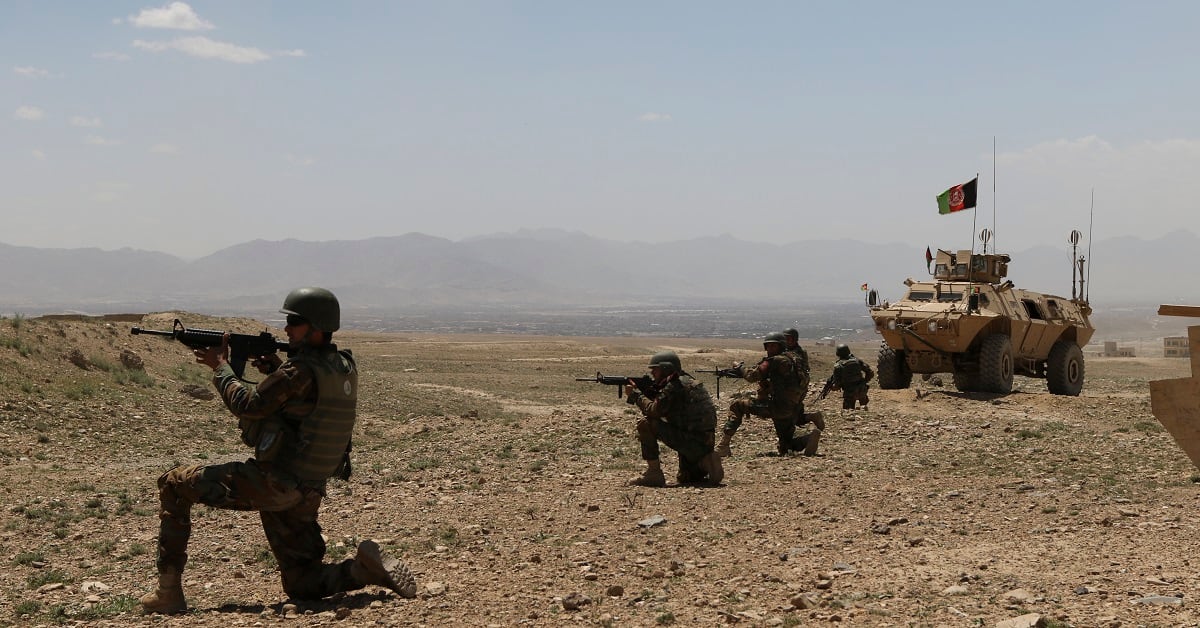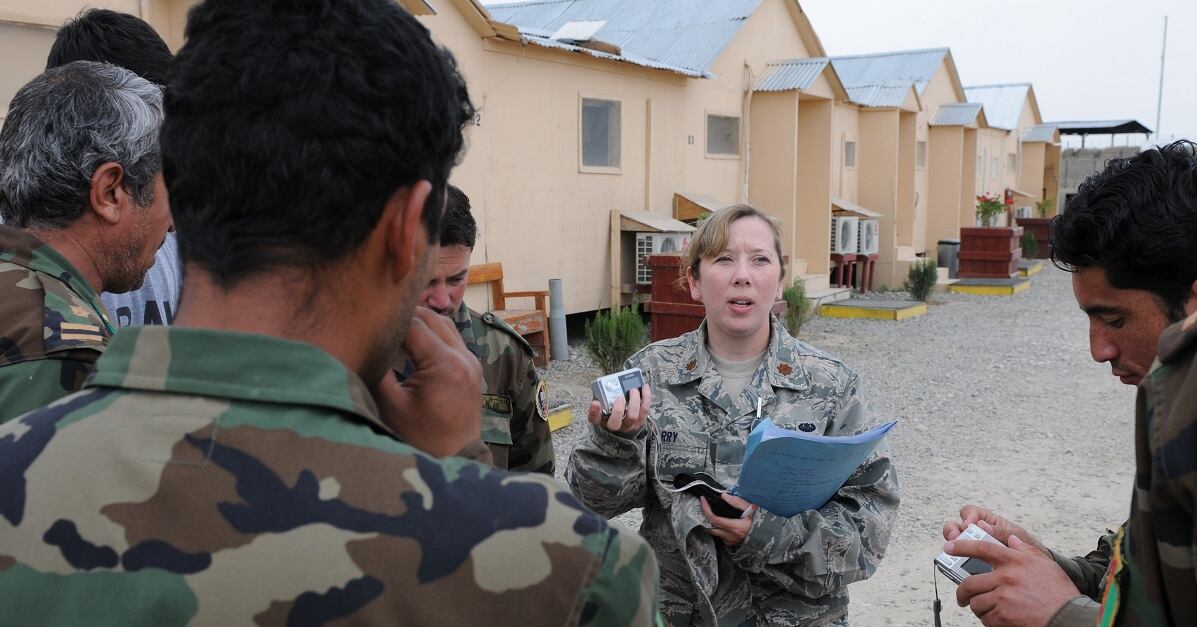The Department of Defense has not been following through on adviser training for some of its service members before deploying them to Afghanistan, going against U.S. Central Command requirements, a government watchdog reported Wednesday.
In an anonymous survey, nearly half of U.S. uniformed personnel serving as advisers at Afghanistan’s Ministry of Defense and Ministry of the Interior said they received no adviser training before deploying, the Special Inspector General for Afghanistan Reconstruction said in its latest audit.
To improve Afghan government officials' resource management, procurement, logistics, maintenance capabilities and overall sustainability, NATO’s Resolute Support mission provides advisers to the MoD and MoI.
These DoD personnel come from all four branches of the U.S. military, as well as those of NATO allies. They are separate from troops, such as those in the Army’s 1st Security Force Assistance Brigade, who deploy to Afghanistan to advise Afghan security forces at the corps and lower levels.
In order to ensure these advisers can work effectively with Afghan officials at the ministry level, DoD created a 10-day Senior Leader Advising Training course, followed by mandating attendance at the NATO adviser training program in Poland, which were approved in February 2018.
RELATED

Despite this requirement, the pre-deployment training for U.S. uniformed personnel “remains less than satisfactory," according to the CENTCOM commander’s Memorandum for Chief of Staff of the Army, dated July 20.
Out of the 103 people who responded to SIGAR’s survey and self-identified as advisers at the MoD or the MoI, 20 further identified themselves as U.S. military uniformed personnel.
Of those 20, nine indicated that they did not receive any adviser training before deploying.
“Furthermore, according to officials we interviewed, the uniformed advisers tend to have the least advisory-specific training,” SIGAR’s report reads.
“For example, the senior [Combined Security Transition Command – Afghanistan] official with oversight of coalition advising personnel said other NATO and coalition countries’ pre-deployment training varies from country to country, but they tend to offer more training than the U.S. armed services," SIGAR’s officials said.

Even among all the U.S. advisers sent to positions at the Afghan MoD and MoI, regular uniformed personnel receive uniquely limited training.
The Pentagon also sends military personnel from the Afghanistan Hands Program to conduct an advisory mission, for instance. These Afghan Hands serve three consecutive one-year tours: an initial deployment to Afghanistan, an Afghan-related posting stateside and then a second deployment to Afghanistan.
The SIGAR report said these individuals’ training consists of 16 weeks of Dari language training, two weeks of cultural and regional training, and six to 10 weeks of combat skills training before the first deployment. Before their second deployment, Afghan Hands complete another six to eight weeks of combat skills training and 14 more weeks of language sustainment training.
But for regular U.S. uniformed personnel, training is significantly more limited in scope.
“CENTCOM could not tell us which uniformed personnel attended the required adviser training programs, and the command does not track which advisers complete training,” SIGAR officials said. “One senior [Combined Security Transition Command – Afghanistan] official said that because many uniformed personnel are performing advising duties but are not formally in advising positions, they are not coded as advisers and may not receive adviser-related training.”
In his July memorandum, the CENTCOM commander said the reason many uniformed advisers do not attend the required adviser training programs is “the combination of training waivers and sourcing process with a heavy reliance on individual augmentees."
In the same memorandum, the commander requested that the Army review the sourcing process to increase attendance at the adviser training programs.
In commenting on a draft of SIGAR’s report, the Pentagon noted that it is aware of concerns about the number of waivers and will review ways to address this problem.
Kyle Rempfer was an editor and reporter who has covered combat operations, criminal cases, foreign military assistance and training accidents. Before entering journalism, Kyle served in U.S. Air Force Special Tactics and deployed in 2014 to Paktika Province, Afghanistan, and Baghdad, Iraq.





